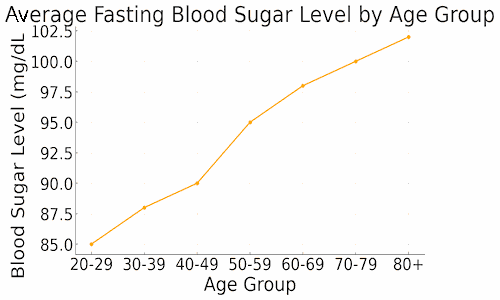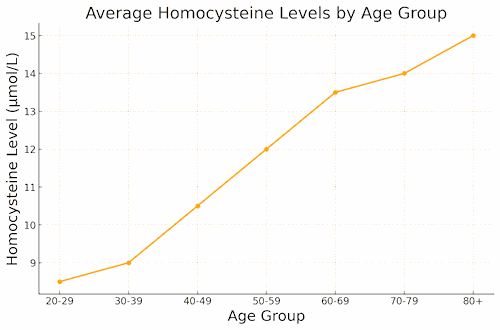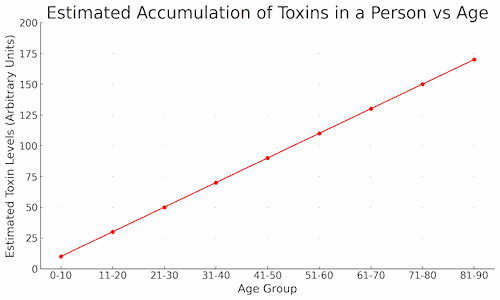- Improving lives since 2002
- Fast, Friendly Service
- Free Nutritional Counseling
The key to health is eliminating toxicities and deficiencies! - Dr. William R. Kellas

By the time one is officially a senior, hundreds of billions of the cells of one’s body are beinrightm13ged daily thleft the damaging effects of homocysteine, free radical oxidation, and glycation (protein changes because of chemical bonding with glucose) upon cells. This damage results in cells that no longer function correctly, and that becomes:

Because of clean water, sanitation, antibiotics, medicines, and surgeries, people live much longer than a century ago, but that longer life isn't matched with high quality of life. In fact, Americans spend the most number of years in very poor quality of health before their deaths of any industrialized nation. That means we're doing something really wrong in how we approach health!
There is a profound difference between simply getting older… and staying strong.
Most seniors do not want endless years at any cost.
They want something better.
Here is the hopeful truth:
Much of what we call “aging” is actually a gradual loss of cellular coordination — and that coordination can be supported.
Inside your body, trillions of cells are constantly communicating — producing energy, repairing tissue, regulating inflammation, and maintaining circulation.
When communication is strong, you feel vibrant.
When it weakens, energy drops and recovery slows.
Biology responds to support.
Modern research shows that when we nourish mitochondrial energy production, protect intracellular signaling, and calm unnecessary inflammatory processes, the body often regains strength it appeared to be losing.
This is not about chasing youth.
It is about protecting capability.
And that is still within reach.

Imagine working in a dirty environment every day but never cleaning it. That’s what happens to your body if you don’t sleep deeply and long enough. Sleep is your built-in repair and restoration system—and it matters more as you get older.
Most people do best with 7 to 9 hours of sleep nightly. Skimping on rest increases risk of inflammation, accelerated aging, hormonal imbalance, cognitive decline, and disease.
Many older adults sleep less and pay the price. Reclaiming sleep quality is one of the most powerful “quality-of-life” strategies available.
Note: If you take medications or have a medical condition, ask your clinician before adding sleep supplements.
Bottom line: Your body can’t restore itself without sleep. This is “the master lever” for energy, mood, inflammation, and resilience.
For seniors, independence often comes down to simple physical abilities: getting up from a chair, climbing steps, carrying groceries, walking without fear of falling, and recovering quickly from a stumble.
The most powerful anti-aging “medicine” is maintaining muscle, balance, and mobility.
Important: If you have osteoporosis, heart issues, severe joint pain, or recent falls, start gently and consider guidance from a physical therapist or qualified trainer.
Seniors who keep friendships, purpose, and learning tend to do better—emotionally, cognitively, and physically. The goal isn’t to stay “busy.” It’s to stay connected and needed.
This one habit quietly improves sleep, stress resilience, and even how well you stick to health routines.

If you want to understand why health often declines with age, one major factor is sugar glycation. High sugar levels glycate proteins. Each hour of elevated sugar contributes to damage that accumulates over time—until tissues, organs, and glands start to struggle.
Here are some interesting quotes by biological scientists:
“Sugar is the most demonized additive known to man.”
“I hope that when you have read this book I shall have convinced you that sugar is really dangerous.”
“The evidence is clear that excess sugar intake is a major risk factor for obesity, type 2 diabetes, and cardiovascular disease.”
“Even slight elevations in blood sugar have been shown to increase the risk of Alzheimer's disease.”
“Sugar, in the amounts we consume today, is a toxin and is driving the major chronic diseases that are making us sick and killing us.”
Note: If you take diabetes medications or insulin, do not make major diet/exercise changes without guidance—blood sugar can drop too low.

As a general marker of overall health status, homocysteine can be useful—especially when viewed alongside blood pressure, inflammation, and lifestyle factors.
Ways to support healthy homocysteine levels:
Note: Supplements are not a substitute for medical care. If you have cardiovascular disease, stroke history, or take blood thinners, consult a clinician before adding new supplements.

More toxins can mean more free radical chain reactions of damaged molecules and cells in the body. Along with stopping homocysteine stress and glycation damage, oxidative stress from toxin exposure is worth reducing.
Seniors often have more accumulated burden and less “buffer,” so small improvements can matter a lot.
We urge you to read our great health practice about keeping the internal body clean.
We also suggest you read our Top Health Habit of Keeping the Internal Body Clean.
While it’s not realistic to make DNA “perfect again,” it is realistic to support the body’s natural repair systems, reduce ongoing damage, and improve how your cells function.
You may hear about experimental longevity approaches (gene editing, plasma exchange, epigenetic reprogramming). These are research areas and should be considered only in legitimate clinical or medical contexts—not self-experimentation.
The practical takeaway: support repair every day with sleep, movement, nutrition, and stable metabolism—and the body often responds.
<< Pop Up 1 - Enter Your Content Here >>
<< Pop Up 2 - Enter Your Content Here >>
Yes, there is a strong association between high sugar consumption during childhood and poor health outcomes in adulthood. Excessive sugar intake in childhood can have long-lasting negative effects on overall health, leading to various chronic conditions later in life. Here are some key points highlighting this association:
High sugar consumption during childhood, especially from sugary beverages and processed foods, significantly increases the risk of childhood obesity. Obesity often persists into adulthood, increasing the likelihood of developing conditions such as heart disease, diabetes, and joint problems.
Consistently consuming high amounts of sugar can lead to insulin resistance over time, increasing the risk of developing type 2 diabetes. This condition, once rare in children, is becoming increasingly common due to diets high in sugar.
Diets high in sugar are linked to increased levels of unhealthy cholesterol and triglycerides, which can lead to cardiovascular problems such as hypertension and heart disease in adulthood.
High sugar intake contributes to tooth decay and cavities in childhood. Poor oral health in early years often leads to long-term dental issues, which can have a broader impact on overall health.
Excess sugar consumption can disrupt metabolic function, leading to chronic conditions like metabolic syndrome, a cluster of risk factors for heart disease and stroke, as well as fatty liver disease.
Early exposure to high-sugar foods shapes taste preferences and eating behaviors. Children who consume a lot of sugar often carry these habits into adulthood, making it more difficult to maintain a balanced and nutritious diet.
In summary, excessive sugar consumption during childhood is strongly linked to poor health outcomes in adulthood, including obesity, diabetes, heart disease, and metabolic disorders. Reducing sugar intake in early years is crucial for promoting long-term health.
Yes, there is a strong association between high sugar consumption during childhood and poor health outcomes in adulthood. Excessive sugar intake in childhood can have long-lasting negative effects on overall health, leading to various chronic conditions later in life. Here are some key points highlighting this association:
High sugar consumption during childhood, especially from sugary beverages and processed foods, significantly increases the risk of childhood obesity. Obesity often persists into adulthood, increasing the likelihood of developing conditions such as heart disease, diabetes, and joint problems.
Consistently consuming high amounts of sugar can lead to insulin resistance over time, increasing the risk of developing type 2 diabetes. This condition, once rare in children, is becoming increasingly common due to diets high in sugar.
Diets high in sugar are linked to increased levels of unhealthy cholesterol and triglycerides, which can lead to cardiovascular problems such as hypertension and heart disease in adulthood.
High sugar intake contributes to tooth decay and cavities in childhood. Poor oral health in early years often leads to long-term dental issues, which can have a broader impact on overall health.
Excess sugar consumption can disrupt metabolic function, leading to chronic conditions like metabolic syndrome, a cluster of risk factors for heart disease and stroke, as well as fatty liver disease.
Early exposure to high-sugar foods shapes taste preferences and eating behaviors. Children who consume a lot of sugar often carry these habits into adulthood, making it more difficult to maintain a balanced and nutritious diet.
In summary, excessive sugar consumption during childhood is strongly linked to poor health outcomes in adulthood, including obesity, diabetes, heart disease, and metabolic disorders. Reducing sugar intake in early years is crucial for promoting long-term health.
Copyright 2002 - 2026. All rights reserved.
These statements have not been evaluated by the Food and Drug Administration. No product mentioned herein is intended to diagnose, treat, cure or prevent any disease. If you are pregnant, nursing, taking medication, or have a medical condition, consult your physician before making any lifestyle change, including trying a new product or food.
The information on this website is intended as a sharing of knowledge and information from the research and experience of the Healthy-Living.Org staff and contributors. It is not intended to replace a one-on-one relationship with a qualified health care professional and it is not intended as medical advice. You should not use the information on this site for diagnosis or treatment of any health problem or for modification of any medication regimen. You should consult with a healthcare professional before starting any diet, exercise or supplementation program, before starting or discontinuing any medication, or if you suspect you have a health problem. You should keep in mind that cited references to ongoing nutritional scientific study are most likely not accepted by the FDA as conclusive. These references and mentions of benefits experienced by others are disavowed as product claims and are only included for educational value and as starting points for your own research. No food or supplement can be considered safe for all individuals. What may benefit 999,999 of a million people may harm you. Therefore, no one can take responsibility for your health except you in concert with your trusted health professional.